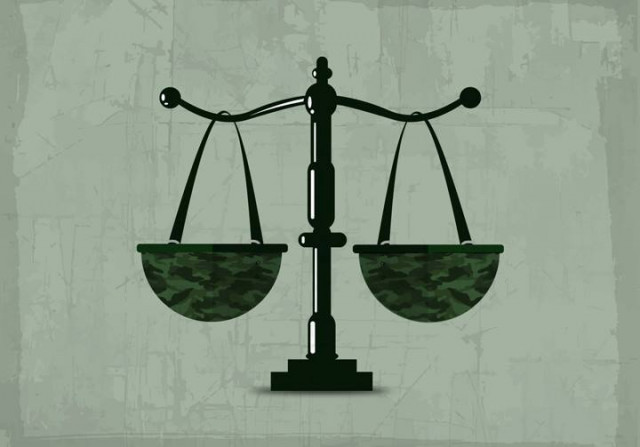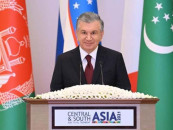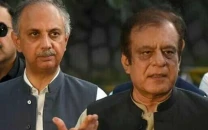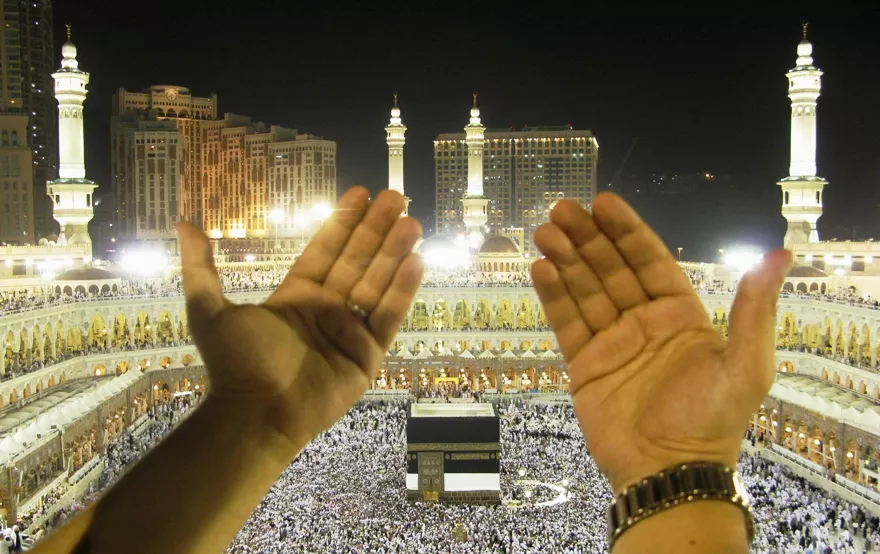PPP gets cold shoulder on military court proposals
Sources say PPP has gone ‘soft’ on the military courts issue

CREATIVE: AAMIR KHAN
The meeting of the parliamentary leaders of political parties was called ‘in order to discuss these proposals and to evolve consensus on the subject of military courts’, according to a statement issued on Sunday.
Sources said the government’s decision to accept the PPP’s demand to specify ‘religious terrorism’ in the constitutional amendment bill – laid in the National Assembly for the re-establishment of military courts – has not gone down well with its key ally, the JUI-F.
This demand was not part of the PPP’s nine recommendations. During the meeting, the JUI-F was of the view that specification of ‘religious terrorism’ in the constitutional amendment bill was against the commitment made to it by the government.
The JUI-F wants a generalised mandate of the military courts while the constitutional amendment bill is similar to the 21st amendment that mainly dealt with ‘religious terrorism’ and was brought after the Dec 2014 attack in Peshawar.
The PPP, sources said, was of the view that the meeting was held to discuss its nine recommendations while the issue of religious terrorism had already been settled and it was a part of the amendment bill.
During the meeting, majority of the political parties opposed the PPP’s recommendations that military courts be headed by sessions judges and that their tenure should be one year.
Sources said the PPP has gone ‘soft’ on the military courts issue and it may not oppose them during the voting stage by deciding to abstain from voting, adding that the PPP’s opposition may be more of a rhetoric.
This development implies that the government will go ahead with its bill in the NA and the PPP move suggested amendments in the bill without introducing a new bill as it earlier announced.
These amendments are likely to be rejected by a majority vote which will eventually pave the way for the government’s bill to sail through the NA. The bill needs two-third majority in the NA and the Senate in order to become a law.
Even though the JUI-F has opposed the military courts but the party being the PML-N’s frontline ally is likely to put its weight behind the government on the issue. All other parties support government on military courts reestablishment.
Speaking to The Express Tribune, the JI parliamentary leader in the lower house Sahibzada Tariqullah said the meeting was convened to discuss the PPP’s nine recommendations.
“It is surprising the government accepted the PPP’s demand of specifying ‘religious terrorism’ when it was not even part of the recommendations. However, the JI has decided in principle to support military courts in the national interest,” he said.
Talking about the Monday’s meeting, he said divisions were likely to persist “but the parliamentary course has to take its place to have the bill sailed through the parliament if the government is serious.”
Published in The Express Tribune, March 14th, 2017.



















COMMENTS
Comments are moderated and generally will be posted if they are on-topic and not abusive.
For more information, please see our Comments FAQ